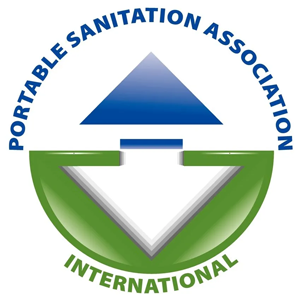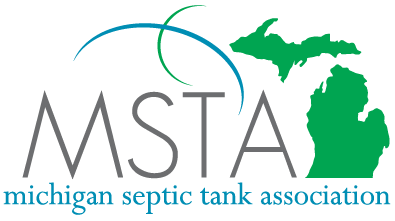FAQs
Stenberg Brothers Inc.
Do you offer grease trap cleaning and maintenance?
Yes. Ensuring grease trap cleanliness is paramount for smooth operations. Our skilled team meticulously inspects and pumps out accumulated grease, preventing clogs and foul odors. Our regular maintenance also safeguards against costly repairs and environmental hazards.Do you rent large restroom units suited for events?
We offer spacious portable restroom units, boasting amenities such as air conditioning, gender separation, hand sanitizer stations, hot and cold water, and ample lighting. Ensuring comfort and hygiene is my priority for events and construction sites alike.What features do you offer with party rentals?
We specialize in party rentals, offering spacious tents with windows and a variety of tables and chairs. Our aim is to create unforgettable events with comfort and style, ensuring every detail exceeds expectations.How often do I need to have my septic tank pumped?
Experts recommend having your system pumped every 3 to 5 years, but several factors should be considered when deciding how often your septic tank needs to be serviced. You must take into account the age of the system, the number of occupants in your home, the use of a garbage disposal, and the amount of laundry being done in the home. Every system is different; what’s right for your system may not be right for your neighbor’s. If you have any questions about when your septic system should be pumped, give us a call!Should I use a bacteria additive product?
Yes! Bacteria must be present in the septic tank to break down and digest the organic solids. Today, households use a wide range of anti-bacterial soaps, detergents, and cleaning fluids. While these ordinary household products do a great job of killing unwanted bacteria in your home, they also destroy beneficial bacteria that your system needs to function properly.My pipes are starting to drain very slowly. Is it the septic system?
Possibly. If your septic system has not been serviced in more than six months, we recommend servicing the septic first. If the problem persists, a drain cleaner will be sent out to clear the washer line to the septic.Is it true I can’t use bleach?
Yes, it’s true. Bleach kills bacteria, and your septic system needs a healthy supply of bacteria to break down the sludge in your tank. Many products we use in our homes today are anti-bacterial, so it’s important to replace that bacteria by using our bacterial additives.Is it okay to use a garbage disposal?
No. Chopped-up food particles do not break down in the septic tank and can make their way into your leach field lines, causing clogs.What is “proper working level”?
Proper working level refers to where the water level in your tank meets the outlet T of the tank. As water enters your tank, it should push water out through the outlet pipe. Even after a week of septic pumping service, your septic tank should return to a “proper working level,” about 1 foot from the top of the tank. Your septic tank will hold liquid to allow for the separation of solids and liquids. Only the liquid (or greywater) should flow out to the leach field pipes.What does a septic filter do?
A septic filter keeps hair, grit, and grime from getting into your leach field lines. It goes on the outlet tee of your septic tank and acts as a strainer, keeping all large solid particles in the tank and out of your leach field lines.If I have a clogged drain, is it safe to use products such as Drano?
Over-the-counter products are a “quick fix” and will not thoroughly clear the drain. These products are also harmful to your septic tank and will kill off the bacteria needed to break down the solids in your tank. Most likely, your drains will continue to clog if you don’t have a drain cleaner come and snake or jet your line.Are there certain cleaning products I need to use if I have a septic system?
It’s recommended to use non-chlorine, non-ammonia, non-antibacterial, non-toxic, and biodegradable cleaning products. Most all-natural cleaners are septic-safe. These types of products will not kill off the bacteria in the system.Is it okay to plant flowers or bushes over my leach field?
No. Don’t plant anything over the leach field except grass. Roots can cause major clogs in your leach lines. It’s also important to never cover the septic tank or leach field with asphalt, concrete, or other impermeable material.What is okay to flush down the toilet?
Even if items are marked as “septic safe,” do not flush them. For example, some baby wipes and cat litter may be labeled this way, but it’s not good for your septic system to flush anything other than human waste and toilet paper, as other items do not break down correctly.Will energy-efficient faucets make a difference with my septic system?
Yes! They are designed to save water, which helps prevent overtaxing the system and aids in conserving water for the environment.I’m in the process of selling my home — is it required to have a septic inspection?
In most states, a septic system inspection is required for a real estate transaction. It’s best to check with your local Board of Health since requirements may vary from town to town or state to state.What do I do if I think I need a new septic system?
First, call your septic company and have them perform a proper septic inspection. Only a licensed inspector can determine if your system is failing. There could be minor or major repairs depending on the reason for the system failure.What are inexpensive ways to maintain a healthy septic system?
The most inexpensive way to maintain your septic system is to reduce your water usage throughout the house, avoid throwing anything down the toilets, sinks, or drains that shouldn’t be in the septic system, and use more environmentally friendly cleaning products and fewer harsh chemicals.What is the number one cause of septic system-related issues?
Ignoring your septic system. Schedule regular septic pumping services and stay ahead of any potential issues. This is the best way to prolong the life of your septic system.






